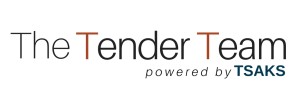In conjunction with the previous blog post, here are a few more tender response plans and systems that are often asked for in any worthwhile tender;
Marketing Plan
Not all companies or organisations responding to a tender may come equipped with a marketing plan. As the name suggests, this plan documents all marketing (promotional, etc) activities that would raise awareness of the tender’s purpose and hopefully create feelings of positive acknowledgement amongst a particular target market or the public at large.
Often, these plans are required when the work or products to be supplied are conducted in a public environment, such as vending machines near public transport or construction activities that may possibly have an effect on the local environment (positive or otherwise). A marketing plan can sometimes be prioritised last in the face of more practical requirements by the tender proposal team as their effects are harder to sometimes measure. With the Tender Team’s assistance, we can help to develop your marketing plan with the same level of care and emphasis as any other document in your submission.
A marketing plan should be utilised to help the selection panel or procuring team demonstrate how your particular company or business is acutely aware of your actions outside of simply fulfilling a contract. They show your potential business partner that your company organisation does not operate in a bubble and accounts for things that even the procuring team did not realise at the creation of their tender itself.
As always, having a marketing plan works through these contingencies with a set of procedures to either proactively create a positive impression of the tender’s purpose or effects or to minimise damage from both expected and unexpected sources. Activities that are often adopted in a marketing plan include;
- Promotional Staff
- Signs and other promo materials
- Media advertisements
Construction/Operation Schedule
Depending on the tenderer’s nature of their supplied products and/or services, a construction/operation schedule is a document that is surprisingly not always asked for in a tender. These schedules show the selection panel/procuring team how you intend to perform all aspects of the task itself. It is more often than not a logical series of steps that can be followed from start to finish, documenting the time and resources required for each progressive stage.
In many engineering and construction tenders, the selection panel/procuring team will often require this schedule in order to assess your tender proposal on a technical basis, judging whether you have logically given enough time and resources to successful complete each step without unnecessary risk or failure.
The Tender Team aims to act as a second opinion on many of these schedules, depending on their technical complexity. We ensure that the basics of the schedule are perfect and are written adequately in an easy to understand manner without compromising the schedule’s technicality.
From our past experience, many of our clients often devise this schedule as a list of activities or even a bar chart categorising the following aspects;
- Day and time of performance period
- Materials required
- Reports to be provided
- Contingencies for unintended delays
Environmental Management Plan
For many engineering and construction tenders, the work that is being offered usually involves making an impact upon the local environment. This impact can be categorised, depending on the person being asked, as either negative, positive or both.
An environmental management plan sets out all policies and procedures for generally minimising damage or other negative influences on the local ecosystem. By-products from projects being constructed, maintained or improved are numerous and with assistance from the Tender Team, we ensure that all of your tenderer’s bases are covered when it comes to foreseeing possible sources of damage to the environment.
Some of the environmental safeguards implemented by our clients include;
- Guidelines on distances, times and proximity to sensitive areas when completing activities designated under contract
- Sustainability of project resources and assessment of their environmental effects
- Adequate waste procedures concerning their removal
- Appropriate initiatives that are practical in minimising, reversing or preventing environmental damage
At the Tender Team, we are constantly aware of what environmental damages can occur in our client’s intended activities and so we endeavour to ensure that our experience is applied to help maintain the nearby environment.




